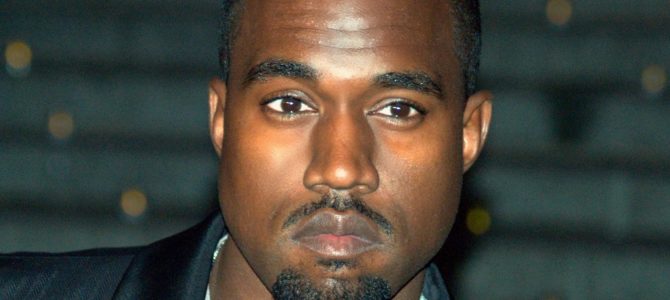
In The Atlantic, which is famous for being of “no party or clique,” Ta-Nehisi Coates has pronounced judgment on Kanye West’s recent pro-Donald Trump comments. Coates is not a fan of Kanye’s new embrace of Trump and “free thought,” whatever Yeezy means by that. And it was inevitable that the nation’s leading black intellectual would have to address the nation’s leading black musician for seeming to leave the progressive reservation.
In Coates’ attack on Kanye (or maybe it’s more a plea for him to return to his roots), one line stood out: “Kurt Cobain’s death was a great tragedy for his legions of fans, Tupac’s was a tragedy for an entire people.” Coates tries to establish this as a vital distinction.
First of all, I’m sure Coates knows black Americans better than I do, but was Tupac’s death really a tragedy for an “entire people”? Might there have been some black people not particularly invested in Tupac? I don’t know, and I stipulate Coates knows better, but it struck me as odd.
The second reason it raised my pique is much more important. One of the central themes of civil rights work for a hundred years has been that black people carry a burden of representation that white people do not, and that it’s not fair. Black people are a credit to their race, or they aren’t, while white people have not borne this burden of representation. They are just themselves.
By treating Tupac’s death as an event, unlike Cobain’s, that affected black people universally, Coates is suggesting that Kanye’s supposed betrayal of black people is particularly bad. Coates argues Kanye has a responsibility to carry the burden of representation. Kanye is not just Kanye. He is black Kanye in a way that Cobain was never white Cobain.
But why didn’t Cobain represent white people? Shouldn’t Cobain, the opioid-abusing suicide victim, have told white people something as important and universal to the white experience, its despair and loneliness, as Tupac’s violent death told black people about the black experience? Why is Kanye responsible for the entire black diaspora while Cobain is only responsible for guys in flannel? And who is making this distinction? Frankly, Coates is.
Whiteness Is a Weird Disease
Coates begins his article by talking about Michael Jackson, a figure he describes as at one time being a “Black God” who chose to become white. It’s the central theme of essay, and it’s strange and uncomfortable. Coates firmly believes Jackson was attempting to become more white, something Jackson denied, claiming he had a skin disease that made him lighter.
Whatever the truth may be, Coates lays out a litany of the weakness and awfulness of whiteness, as follows: “you could see the dying all over his face, the decaying, the thinning, that he was disappearing into something white, desiccating into something white, erasing himself, so that we would forget that he had once been Africa beautiful and Africa brown, and we would forget his pharaoh’s nose, forget his vast eyes.”
Desiccating into something white. Jeez. As someone who was born desiccated into something white without the option of being Africa beautiful (notwithstanding Rachel Dolezal’s attempt), this phrasing raises my eyebrows a little bit. It’s not so much because whiteness is being run down. That’s fine, and is perhaps the price of supposed hegemonic power. But it’s rather because it suggests Kanye is being invited into the club. Who is Coates to declare that Kanye is becoming white? All due respect, but isn’t that our call? Who made Coates the arbiter of whiteness?
This brings us back to Jackson. Was the master of the moonwalk ashamed of his dark skin, anxious to gain acceptance to white society, in fact trying to make himself white? He said no. Coates says yes. When David Bowie and Kiss transformed their physical appearances in furtherance of their art, there was no cultural uproar. This is just what rock stars do.
Not so for Jackson because, like Kanye, he was asked to shoulder the black burden, to be the emissary and representative. The problem is that Jackson felt just as connected to his fans in Japan as to his black fans in America. Was that a betrayal? In Coates’ mind, it was. For Jackson’s millions, maybe billions, of fans across the globe, not so much.
Coates Does Not Want Peace and Reconciliation
I admire Coates much as he admires Kevin Williamson. I think he writes well. I enjoy his turns of phrase even when I find them at odds with the project of a united and healthy nation. But what Coates has never made clear to me, and maybe he doesn’t want to, is what a racially just America looks like. His beautiful prose about being oppressed moves me in the same way the works of my oppressed Irish ancestors do. But what is the solution?
West’s facile acceptance of Trumpism, to whatever extent he really is supporting Trump, is a threat to the black intelligentsia. I’m not thrilled with ideas like “slavery was a choice,” but I’m white, so who am I to say. Maybe what Kanye is doing is showing how demarcated our lives and lines are. Maybe Kanye should pay more attention to black people. Maybe blackness isn’t something I should involve myself in. Maybe I should just listen to the Pogues, support Irish independence, and ignore black issues.
We can have that world, the segregated world Coates believes we need, to let black people have the space to self-realize. Fine. Take the space, take the time, take the million-dollar Bed Stuy brownstone. But nobody is going to tell Kanye what to do. He’s the great artist, the muse. Like Michael Jackson, he creates for everyone, not just black people and white people ready to wear the hair shirt of shame. Imagine what Coates could achieve if he took the same approach.









